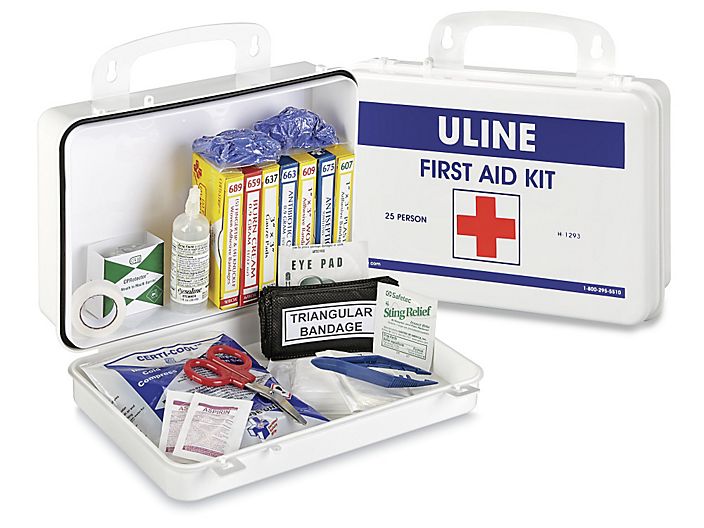Yesterday I was Assistant Stage Managing an event and I had to go tape out some directional arrows on the floor and tape down a “keep clear” path through a dressing room that people were also using as a crossover. I think I had to use roughly .001% of my brain to do that.
However, the Stage Manager in charge sent another much younger ASM with me to do this job. She had apparently never done this before and it was one of those things that was just so obvious to me how to do it that it wasn’t until I went over to check out what she’d been up to that I realized she didn’t seem to know what was up.
Sometimes things that seem super obvious aren’t super obvious until someone points them out to you.
So, Americans, do you have a Health Savings Account? Cause they’re kind of magical and, honestly, most health insurance options likely qualify for one.
You might be wondering, what is a Health Savings Account (commonly abbreviated HSA)?
It’s a savings account where you can put pretax dollars (like a 401k or IRA) and then withdraw that money with no taxes owed (like a Roth 401k or Roth IRA) as long as you use it for a medical expense that happened anytime after opening the account.
It also lowers your taxable income, like contributing to other retirement accounts like a 401k or IRA does.
So, let’s say you’re putting $100 a month into your HSA and two months in, you get a sinus infection. You go to the doctor ($40 co-pay) and they give you a prescription for some antibiotics ($20) and tell you to get a sinus spray and some pain killers too. Ask them to write the sinus spray and painkillers out as a prescription ($30 more dollars).
Now, if you’re a little cash strapped. You can either submit your $90 in bills or put all of those bills on your HSA debit cards and get $90 back from your account and you saved whatever your tax rate is.
But, the real magic of the HSA is for the people who have finally made it into their first baby step past broke and beyond. If you can float that $90, you just file those receipts (and a copy of the prescriptions) and leave the money in your HSA alone.
At any time you ever need that $90 in the future, you can submit those receipts and take out the $90 with no penalties. Be it next month, next year or your third year of retirement.
Get where I’m going with this? It’s a pretty risk free savings account, but here’s another excellent part – your HSA can also be an investment vehicle. Now, if you think you’ll need access to the funds soon, you should leave at least a chunk of it in the savings part of the plan, but if you’re doing ok and can generally cash flow your healthcare costs, you can use your HSA as another type of retirement investment account that is much accessible than any other kind.
Even if you’re not ready to let it be an investment account, if you wear glasses or contacts, see a therapist, regularly have dental issues – essentially, if you have any reoccurring healthcare costs that you know are going to hit you anyway, you can now use an HSA to at least save whatever your tax rate is on these expenses.
It’s fairly amazing. And a crazy array of things are covered through your Health Savings Account. There’s a full list here, but some surprising items also include:
- Acupuncture
- Athletic Braces
- Band-Aids
- Chiropractors
- Condoms
- First Aid Kits
- Pregnancy Tests
- Reading Glasses
- Prescription Sunglasses
- Sunscreen above SPF 15
Are you as excited about HSAs as I am now? So you might be wondering, how do I open one of these magical things?
Well, if you work for a big company, you can see if they have one you can join, which will be pretty easy. If they don’t, there are plenty of places you can open your own online, you just have to make sure you meet the requirements:
- For 2019, you have to have a high deductible healthcare plan with a minimum deductible of $1,350 for singles or $2,700 for family coverage.
- You are covered on the first day of the month. This means that you are eligible for the entire year as long as you have at least one full month of coverage, starting on the 1stof December, at the latest. If you start eligible coverage after December 1stof any year, you’d have to wait till the next year starts to be qualified to contribute.
- You have no additional healthcare coverage. This does not include vision, dental, disability or long-term care insurance.
- You are not enrolled in Medicare (though if you enroll in Medicare later, you can continue using your HSA, you just can’t contribute to it anymore).
- You can’t be claimed as a dependent on anyone’s tax return.
Some places to look into:
- Old National Bank partners with HSA Authority (incidentally, that’s where my HSA is)
- LivelyHSA
- Fidelity
If you want to read more about what the IRS says about HSAs, you can find that info here.





Wo. I never know about it at all. reading this post gave me a lot. Thanks.